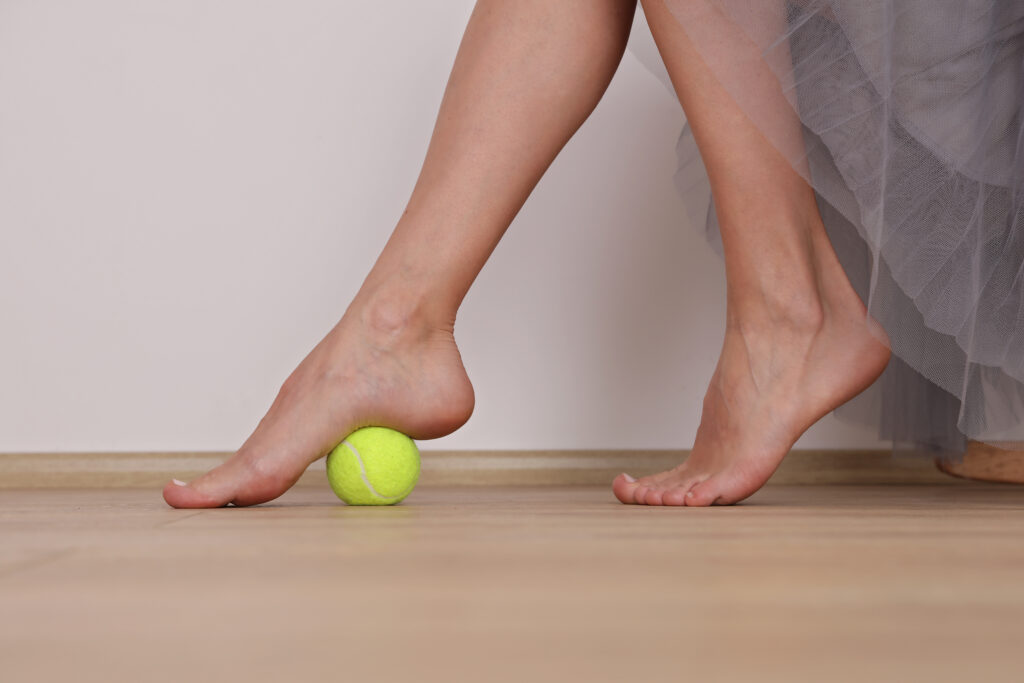Home Remedies for Plantar Fasciitis

Plantar fasciitis has always been a big problem for many people due to its intense pain!
But sometimes some people choose to ignore the treatment and endure the pain for a while just because they don’t have enough time to visit a doctor or think the pain will go away on its own.
Unfortunately, this problem doesn’t go away on its own instead it may cause problems like heel spurs, plantar rupture, and injuries in your fascia.
All these conditions can be really scary.
So if you changed your mind about ignoring plantar fasciitis, you must treat it as soon as possible, here is a list of home remedies for plantar fasciitis, since home remedies are the best choice if the pain has started recently.
Icing
Icing is the best solution, it can reduce inflammation and swollen foot. It can be found in anyone’s refrigerator and there are some easy methods to apply it such as:
Make an ice pack of crushed ice and wrap it with a towel and put it on your heel for 10-20 minutes a day at least 4 times a day.
The other method includes filling a small tub with cold water and ice. Make sure your foot fits into the tub so that you can soak your feet.
Do it once a day at least for 15 minutes.
Take a Break from Exercise
You need to give a break to your heels If you are suffering from plantar fasciitis. You should avoid exercises like jogging and running. Exercises in which you need to put pressure on your legs should also be avoided until the tears of your fascia are healed.
Massage Your Feet
To do this take a tennis ball or any other softball, sit comfortably and put your foot on the ball and massage it in a circular motion.
It will stretch your fascia, do it twice a day for 10 minutes.
Losing Weight
Carrying extra weight is the leading cause of plantar fasciitis because it applies unnecessary weight to your feet.
Even the weight increased by pregnancy can increase pressure on the feet and cause plantar fasciitis.
Increased weight also may be the reason your plantar fasciitis is returning repetitively.
But don’t worry this problem can be easily solved just by losing weight and maintaining a healthy one.
Once the weight goes away you won’t be dealing with this problem again!
Wearing Supportive Shoes
If your shoes aren’t comfortable enough then treating your problem may be hard since they also play an important role in your recovery.
Choose shoes that provide a comfortable arch and low heel, they are good for your injured fascia.
If you have old shoes then consider changing them to new ones and if you wear high heels you must avoid them for a while for best results.
Wearing Splints
A night splint can brace your foot and ankle in the appropriate posture while you sleep in more severe cases.
Splints used at night will assist stretch the plantar fascia and relieve pain.
Stretching
Stretching before any kind of physical activity is essential but if you don’t then you are putting your fascia at a risk.
Therefore, before any kind of exercise, you must properly stretch so that your feet can get a warm-up.
How To Prevent Plantar Fasciitis In Future?
In most cases, it’s possible for you to prevent and avoid symptoms of plantar fasciitis.
All you need to do is follow some preventive tips, here are some of the most useful tips to stay safe from plantar fasciitis:
- Avoid Standing For Long Periods
Did you know that standing for long periods is also a cause of plantar fasciitis?
When you stand for too long you put pressure on your fascia and since the fascia remained in the same position while you were standing a lot of pressure was applied on it.
Therefore your job requires standing for long periods then you must take rest for a while, this will help you prevent pressure on fascia and you can avoid plantar fasciitis.
- Recognize Early Signs Of Plantar Fasciitis
If you can recognize the early signs of plantar fasciitis then you can treat it on your own or prevent before it gets worse!
If you are wondering what are early signs of plantar Fasciitis then here are some of them:
- Pain in heal, especially in the morning when you wake up
- Pain that goes away but returns if you move suddenly
- Flare-up of discomfort after any kind of intense activity
- Swollen heel
If you notice any of the above symptoms then it’s time for you to try the home remedies given above since they can be really helpful when your plantar Fasciitis is mild.
What are signs of a healing plantar fasciitis?
If you are experiencing plantar fasciitis, there are several signs to look for that indicate your foot is healing:
Reduced pain: As your plantar fascia begins to heal, you should notice a reduction in pain and discomfort in your foot. This may be most noticeable in the morning, when the foot is stiff from inactivity, or after long periods of standing or walking.
Improved range of motion: Plantar fasciitis can cause stiffness and limited range of motion in the foot. As the tissue heals, you should notice an improvement in your ability to move your foot and bend your toes.
Decreased swelling: Inflammation and swelling are common symptoms of plantar fasciitis. As the tissue heals, you should notice a decrease in swelling in the affected area.
Reduced sensitivity to pressure: Plantar fasciitis can make the affected area very sensitive to pressure, making it painful to touch or apply pressure. As the tissue heals, you should notice a reduction in sensitivity and discomfort when pressure is applied to the affected area.
Improved walking and standing ability: Plantar fasciitis can make it difficult to walk or stand for long periods of time. As your foot begins to heal, you should notice an improvement in your ability to perform these activities without pain or discomfort.
When is the best time to look for doctor for plantar fasciitis?
If you suspect you have plantar fasciitis, it is best to consult with a doctor as soon as possible. The earlier the condition is diagnosed and treated, the better the chances of a full recovery. Symptoms of plantar fasciitis include pain and discomfort in the heel or arch area of the foot, especially when first standing up in the morning or after long periods of inactivity. If left untreated, plantar fasciitis can become a chronic condition that can be difficult to manage.
When Should I Look For A Doctor?
Visit your doctor if you notice any of the following symptoms:
- Pain in heel especially in the morning
- Difficulty in walking
- Changing your walking style
- Feeling pain all day
- Suffering from intense pain or suffering from the pain you can’t manage
- It’s been so long since you have developed plantar fasciitis
Conclusion
The plantar fascia can cause you tremendous pain if ignored for months. At the start, you will feel a lot of pain when you take the first step of your day and it will disappear later. But later some serious complications like heel spurs and rupture of fascia can occur, so if you experience pain in your heel seek medical help as soon as possible.
